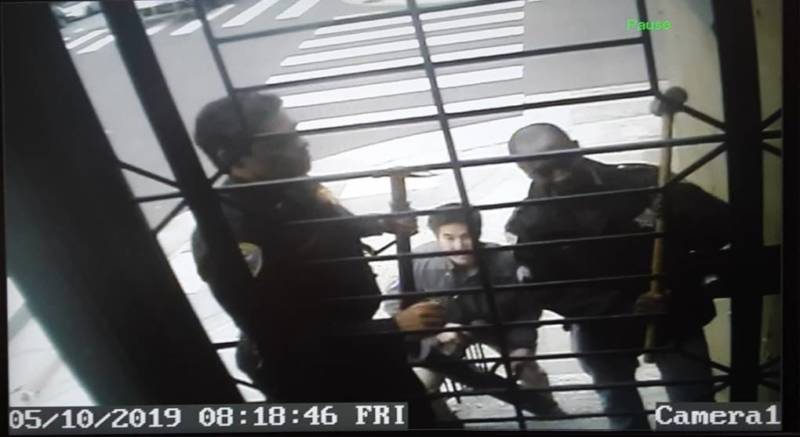A third San Francisco Superior Court judge, Christopher Hite, ruled on Friday that an SFPD warrant for Carmody's phone records was also improper because of his status as a journalist.
Per the ruling, police now can't use any evidence or information gathered under the two warrants and must destroy the phone records they obtained.
Dekreon said that when she originally issued the warrant, she had not been informed of Carmody's role as a journalist.
"That shouldn't have happened," said Tom Burke, Carmody's attorney (who has also represented KQED in other First Amendment cases). "They issue press passes out of the chief's department, and they had the capacity presumably to know who they've issued them to."
Burke added that while the court can't undo what happened, the rulings are "about as good as you can get in terms of trying to go back in time and stop what was clearly a violation of his protected constitutional rights as a journalist."
When obtaining the warrant for Carmody's office, police investigators had probable cause that he conspired with someone to take the police report, Hwang said. However, because the information that gave investigators probable cause came from a warrant that was ruled invalid last month, the probable cause no longer is valid.
Dekreon and Hite also ruled that police must unseal most of the warrants, with the exception of several pages.
"It means that the public is going to be able to hold the San Francisco Police Department accountable for its actions," said attorney Duffy Carolan, who filed the motion to unseal the warrants. "And the people, the public, are going to be able to understand what the court knew at the time that it issued those warrants."
Dekreon said that roughly two pages of the 14-page affidavit for the warrant for Carmody's San Francisco home must be redacted because it could influence the ongoing probe by the Department of Police Accountability into SFPD's investigation. Dekreon added that those redacted pages include information gathered from Carmody's phone records.
Hite said he would also redact information that could reveal the identity of an informant.
These warrants are among five issued in the SFPD's investigation into the leaked Adachi police report. Two weeks ago, San Francisco County Superior Court Judge Rochelle East ruled that one of the warrants for Carmody's phone records was improper, and that it should be unsealed, with the exception of one paragraph, which she said contained information about a confidential informant who would suffer retribution if his or her identity was revealed.
The San Francisco Chronicle reports that the sealed paragraph shows that SFPD Director of Communications David Stevenson told investigators that Carmody, who has had an SFPD press pass for many years, had obtained the Adachi police report. It did not mention that Carmody was a journalist.
SFPD did not immediately respond to a request for comment on Friday's rulings.
SFPD said in a statement that its leadership had become "concerned about a lack of due diligence in the seeking of search warrants and the appropriate addressing of Mr. Carmody’s status as a member of the news media."
The Department of Police Accountability will keep investigating the search warrant on Mr. Carmody’s home, and continue their own investigation into the unauthorized release of the police report. The SFPD, under the oversight of the Police Commission, will also review its protocols involving members of the news media.
Judges have yet to rule on the warrant for Carmody's office and the final warrant for his phone records.

